Marijuana Sales Begin Tuesday in MA; CT Expected to Consider Legalization in 2019
/Massachusetts begins the sale of recreational marijuana on Tuesday, in Northampton and Leicester, as Connecticut looks ahead to a new Governor and new legislature, taking office in six weeks, with the addition of recreational sales on the agenda to complement a thriving medical marijuana program.
Thirty-three states and the District of Columbia currently have passed laws broadly legalizing marijuana in some form. The District of Columbia and 10 states -- Alaska, California, Colorado, Maine, Massachusetts, Michigan, Nevada, Oregon, Vermont and Washington -- have adopted the most expansive laws legalizing marijuana for recreational use, according to Governing magazine. The Massachusetts law was approved two years ago, but retail sales have not begun - until this week.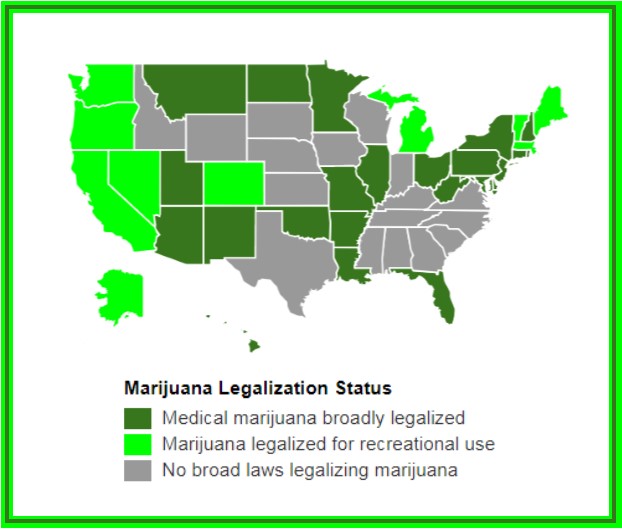
Governor-elect Ned Lamont told Connecticut Public Radio listeners, just a few days prior to his election, that “I think legalizing marijuana is an idea whose time has come…and I’m gonna push it in the first year” of the new administration. He added that “maybe we should tax this, regulate it in a serious way, put some of that money toward opioid treatment.”
Most recently, Michigan voters approved a ballot measure permitting adults age 21 and over to purchase and possess recreational-use marijuana. Vermont became the first state earlier this year to legalize marijuana for recreational use through the legislative process, rather than via a ballot measure. Vermont's law allows for adults age 21 and over to grow and possess small amounts of cannabis. However, it does not permit the sale of nonmedical cannabis. Some other state laws similarly decriminalized marijuana, but did not initially legalize retail sales.
The Connecticut General Assembly's Regulations Review Committee agreed last week that chronic neuropathic pain associated with degenerative spinal disorders is eligible for treatment with the drug, adding that to the list of approved conditions. There are now 31 conditions that have been approved for adults and eight for patients under 18 that can be treated with medical marijuana. Minors can be treated for eight conditions.
There are currently 29,543 patients in Connecticut's medical marijuana program and 1,000 certifying physicians, according to published reports. In recent months, DCP has launched a database listing medical marijuana brands registered with the state and added eight new conditions to the program. The eight new conditions for adults added this summer include: Spasticity, or neuropathic pain associated with fibromyalgia; Severe rheumatoid arthritis; Postherpetic neuralgia; Hydrocephalus with intractable headache; Intractable headache syndromes; Neuropathic facial pain; Muscular dystrophy; and Osteogenesis imperfecta.
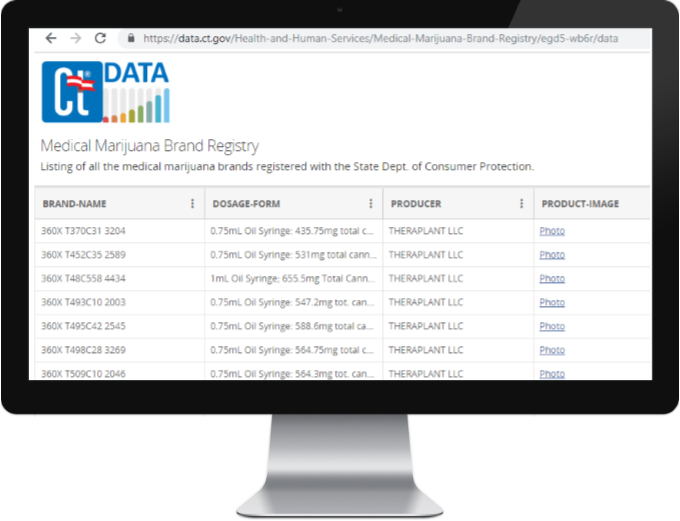 Connecticut’s nine dispensaries and four growers are reportedly discussing adding more storefronts and growers in light of an increasing patient count.
Connecticut’s nine dispensaries and four growers are reportedly discussing adding more storefronts and growers in light of an increasing patient count.
Last month, Rhode Island’s Department of Health this week approved medical marijuana use for people who suffer from some severe manifestations of autism, most of whom are children. But before doctors can recommend marijuana, the health department has implemented several safeguards "to ensure that patients are being treated safely." Seven other states have made autism a qualifying condition for medical marijuana, according to advocacy group #cannabis4autism: Delaware, Georgia, Louisiana, Michigan, Oregon, Minnesota and Pennsylvania.
At the University of Connecticut, Professor Gerald Berkowitz will teach students about marijuana growing, a burgeoning industry as more states legalize cannabis use for medical and/or recreational purposes. The UConn class — called "Horticulture of Cannabis: from seed to harvest" — is a lecture course, and it's attracted about 270 students who will begin studies in January, Hartford Business Journal reported this month.
In Colorado, the adult-use marijuana market continues to surge nearly five years after the launch of recreational sales in the state, according to a recent news report. Through August 2018 – the most recent data available from the Colorado Department of Revenue – recreational marijuana sales topped $800 million and the state is on pace to surpass $1.2 billion by the end of the year. That would represent a 12 percent increase over total sales in 2017. As of August 2017, 498 recreational stores were licensed throughout the state; that number grew to 541 by September 1, 2018 – a 9 percent increase


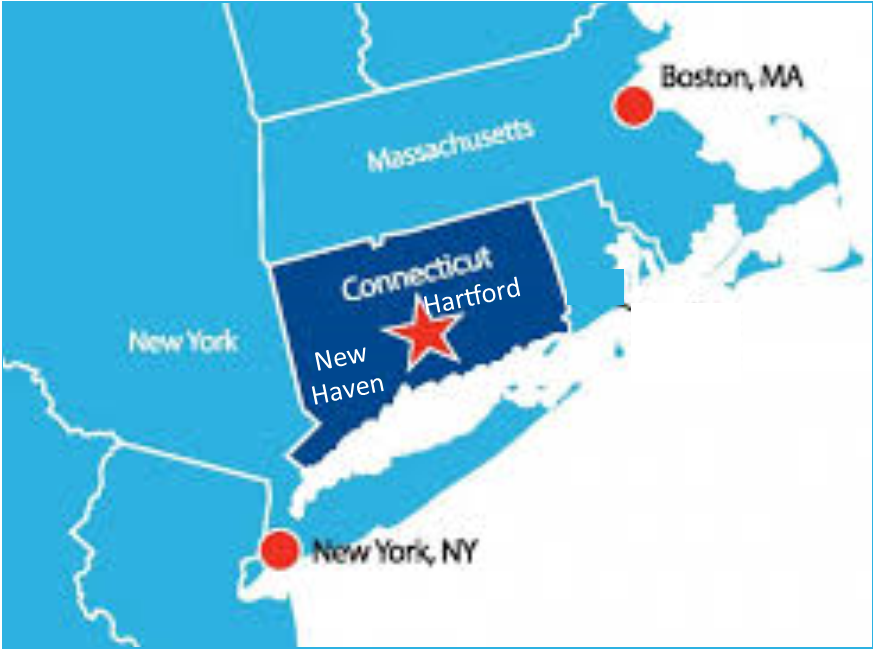 The characterization of two of the state’s largest cities as potential “suburbs” of New York and Boston, seemingly overlooking Bradley International Airport and Tweed-New Haven in the process, has raised questions from officials.
The characterization of two of the state’s largest cities as potential “suburbs” of New York and Boston, seemingly overlooking Bradley International Airport and Tweed-New Haven in the process, has raised questions from officials.
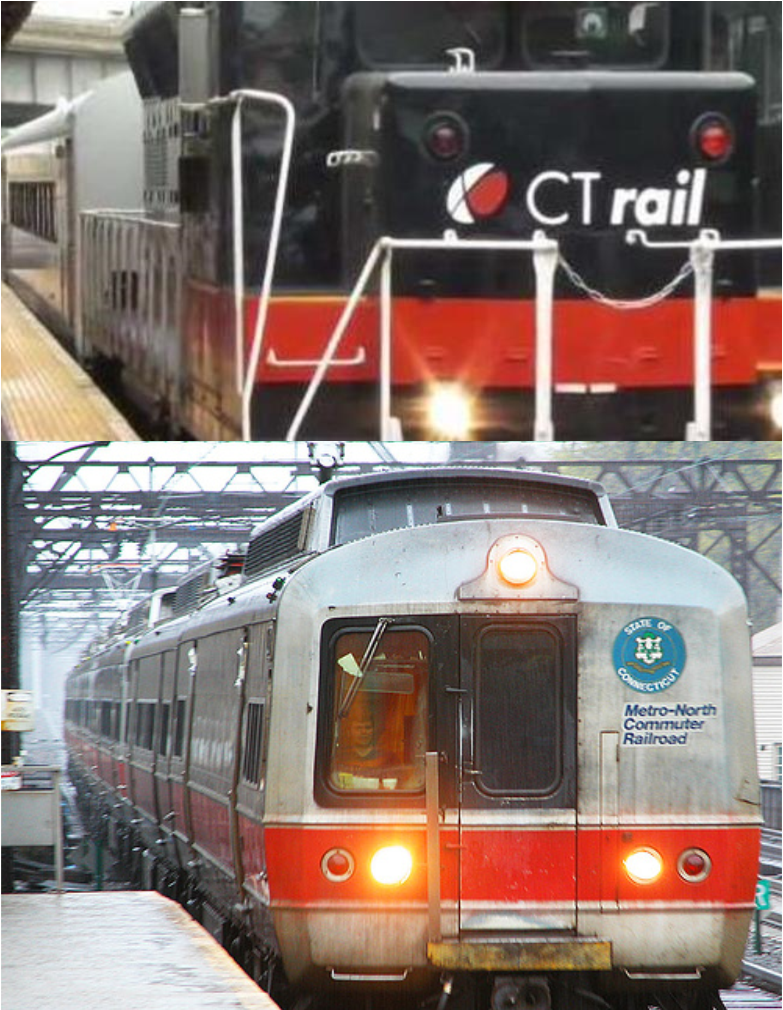 Cohen, who has received national recognition in his field, praised the CTrail Hartford line - which connects New Haven, Hartford, and Springfield, MA - and CTfasttrak bus line – which links Hartford and New Britain - noting that “we are starting to see residential and business development near the stations, and this is one of the big benefits of transit.”
Cohen, who has received national recognition in his field, praised the CTrail Hartford line - which connects New Haven, Hartford, and Springfield, MA - and CTfasttrak bus line – which links Hartford and New Britain - noting that “we are starting to see residential and business development near the stations, and this is one of the big benefits of transit.”
 Leading the way in the five-year analysis, released this month, are Barnstable in Massachusetts, at 13.7 percent employment growth; in New Hampshire it is Portsmouth at 10.1 percent, in Rhode Island, Providence/Warwick at 7.7 percent; Maine the greatest job growth has been in Portland/South Portland at 7.1 percent. Vermont is the only New England state with a leading city growing jobs at lower rate than Connecticut’s – Burlington/South Burlington at .8 percent. Only Alaska and Wyoming are lower, rounding out the 50 states.
Leading the way in the five-year analysis, released this month, are Barnstable in Massachusetts, at 13.7 percent employment growth; in New Hampshire it is Portsmouth at 10.1 percent, in Rhode Island, Providence/Warwick at 7.7 percent; Maine the greatest job growth has been in Portland/South Portland at 7.1 percent. Vermont is the only New England state with a leading city growing jobs at lower rate than Connecticut’s – Burlington/South Burlington at .8 percent. Only Alaska and Wyoming are lower, rounding out the 50 states.
 The analysis, by the financial services website WalletHub, was based on 40 key indicators of livability, ranging from housing costs to school-system quality to restaurants per capita. The indicators were grouped into five categories – affordability, economic health, education & health, safety, and quality of life.
The analysis, by the financial services website WalletHub, was based on 40 key indicators of livability, ranging from housing costs to school-system quality to restaurants per capita. The indicators were grouped into five categories – affordability, economic health, education & health, safety, and quality of life.
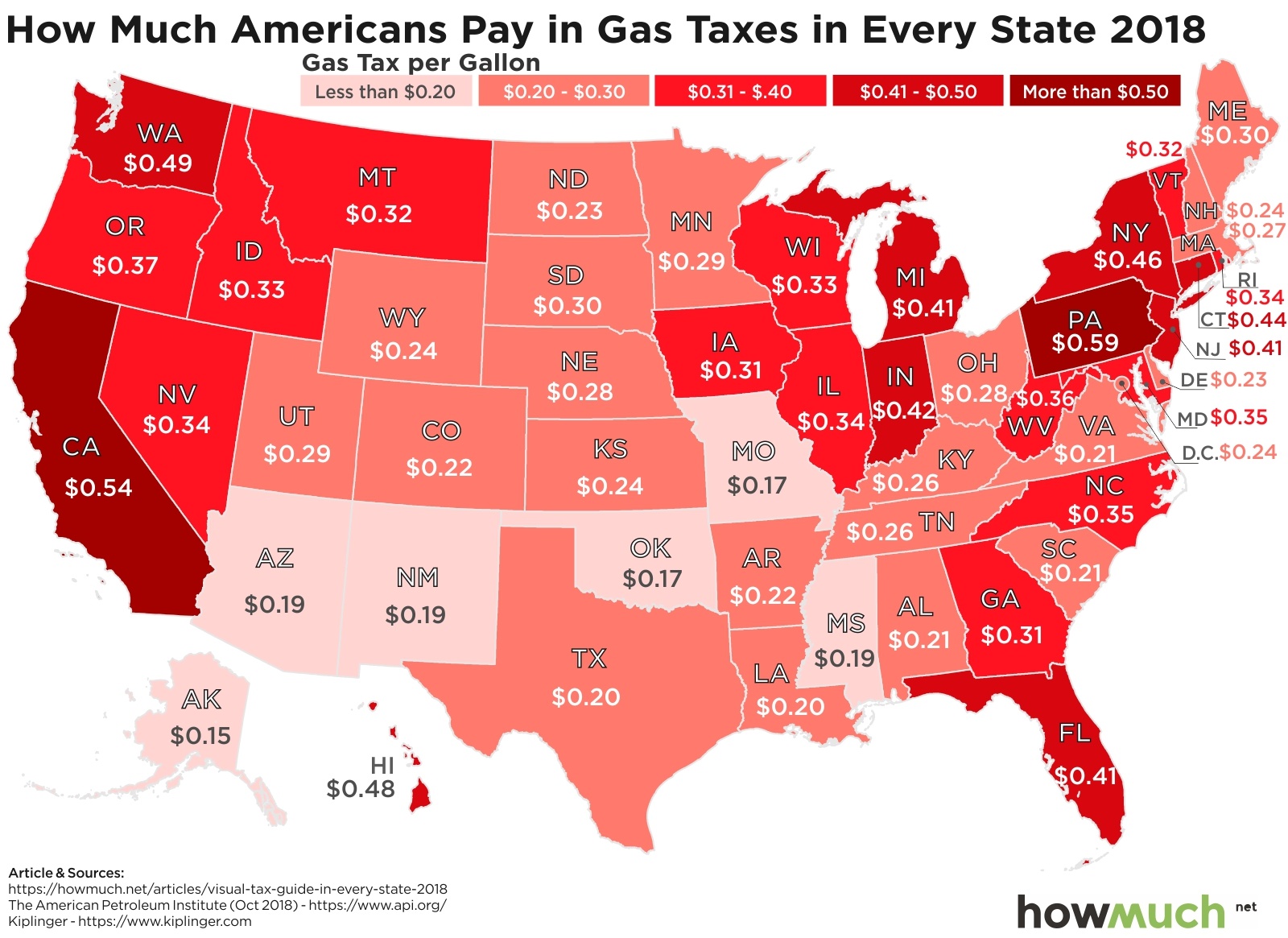
 In total, 27 states have raised or reformed their gas taxes since 2013. Indiana instituted a 10-cent increase in 2017; Oregon approved a 10-cent phase-in that began this year. The South Carolina legislature overrode a Governor’s veto to enact a 12-cent-per- gallon increase in the tax rate to be phased in over 6 years, according to data compiled by the Institute on Taxation and Economic Policy. Oklahoma’s legislature approved a 3 cent increase this year - that state’s first since 1987.
In total, 27 states have raised or reformed their gas taxes since 2013. Indiana instituted a 10-cent increase in 2017; Oregon approved a 10-cent phase-in that began this year. The South Carolina legislature overrode a Governor’s veto to enact a 12-cent-per- gallon increase in the tax rate to be phased in over 6 years, according to data compiled by the Institute on Taxation and Economic Policy. Oklahoma’s legislature approved a 3 cent increase this year - that state’s first since 1987.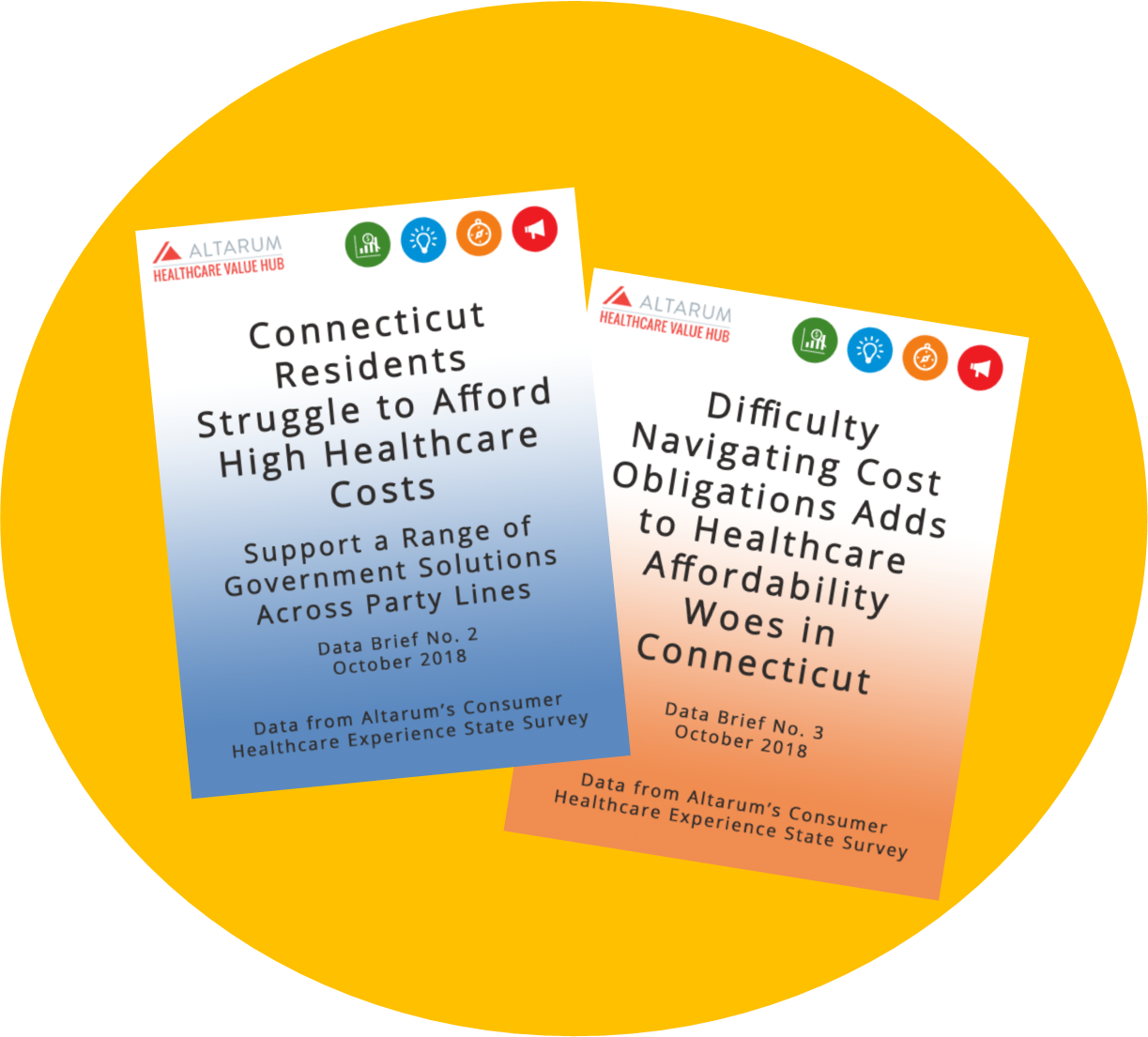 The survey revealed that residents are not satisfied with the current health care system: 80 percent agree or strongly agree that “the system needs to change.” When given more than 20 options, they focused on the high prices charged by industry players, citing most frequently as a “major reason” for high health care costs:
The survey revealed that residents are not satisfied with the current health care system: 80 percent agree or strongly agree that “the system needs to change.” When given more than 20 options, they focused on the high prices charged by industry players, citing most frequently as a “major reason” for high health care costs:


 The comprehensive assessment of Hartford’s ecosystem also noted that “Hartford’s [startup] founders claim to have the right ambition to go global,” concluding that “Hartford’s startups have more potential to strengthen Global Market Reach and Global Connectedness.” In a number of areas analyzed in the assessment, Hartford is seen as having potential to strengthen the local startup community, its reach beyond Hartford, and the demographic of startup teams.
The comprehensive assessment of Hartford’s ecosystem also noted that “Hartford’s [startup] founders claim to have the right ambition to go global,” concluding that “Hartford’s startups have more potential to strengthen Global Market Reach and Global Connectedness.” In a number of areas analyzed in the assessment, Hartford is seen as having potential to strengthen the local startup community, its reach beyond Hartford, and the demographic of startup teams.




 The VentureClash competition started with applications from 300 companies from more than 15 countries. After two rounds of judging, nine finalists were named, and they then went on to compete at the live pitch event. The judges included investors and subject-matter experts from Greycroft Partners, Oak HC/FT, Real Ventures, Stanley Ventures, Teamworthy Ventures, Travelers and the Royal Bank of Scotland.
The VentureClash competition started with applications from 300 companies from more than 15 countries. After two rounds of judging, nine finalists were named, and they then went on to compete at the live pitch event. The judges included investors and subject-matter experts from Greycroft Partners, Oak HC/FT, Real Ventures, Stanley Ventures, Teamworthy Ventures, Travelers and the Royal Bank of Scotland.




























